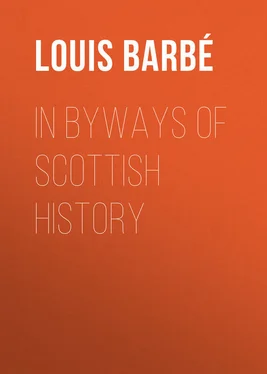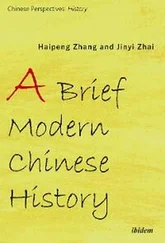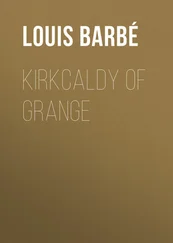Louis Barbé - In Byways of Scottish History
Здесь есть возможность читать онлайн «Louis Barbé - In Byways of Scottish History» — ознакомительный отрывок электронной книги совершенно бесплатно, а после прочтения отрывка купить полную версию. В некоторых случаях можно слушать аудио, скачать через торрент в формате fb2 и присутствует краткое содержание. Жанр: foreign_antique, foreign_prose, на английском языке. Описание произведения, (предисловие) а так же отзывы посетителей доступны на портале библиотеки ЛибКат.
- Название:In Byways of Scottish History
- Автор:
- Жанр:
- Год:неизвестен
- ISBN:нет данных
- Рейтинг книги:4 / 5. Голосов: 1
-
Избранное:Добавить в избранное
- Отзывы:
-
Ваша оценка:
- 80
- 1
- 2
- 3
- 4
- 5
In Byways of Scottish History: краткое содержание, описание и аннотация
Предлагаем к чтению аннотацию, описание, краткое содержание или предисловие (зависит от того, что написал сам автор книги «In Byways of Scottish History»). Если вы не нашли необходимую информацию о книге — напишите в комментариях, мы постараемся отыскать её.
In Byways of Scottish History — читать онлайн ознакомительный отрывок
Ниже представлен текст книги, разбитый по страницам. Система сохранения места последней прочитанной страницы, позволяет с удобством читать онлайн бесплатно книгу «In Byways of Scottish History», без необходимости каждый раз заново искать на чём Вы остановились. Поставьте закладку, и сможете в любой момент перейти на страницу, на которой закончили чтение.
Интервал:
Закладка:
As Dr. Galy pointed out, the new version of the "Song", to which, it should be stated, no author's name is attached, established, on the authority of Brantôme himself, that he had attributed to Mary Stuart verses which he knew were not hers. It did not, however, afford any clue to the real authorship, and the possibility that the whole poem was of Brantôme's own composition does not seem to have occurred to Dr. Galy. That such is the case is our firm belief. A careful comparison of the anonymous "Chanson" with the various poems avowedly by Brantôme has revealed such similarity, not only of thought and imagery, but even of expression, as convinces us that nobody but himself can be the author of The Song of Mary Stuart .
The 102nd sonnet in Brantôme's collection is one which he addressed to Mlle de Limeuil. Not only is the whole tone of it strikingly similar to that of the "Song", but it contains passages which cannot be explained away on the assumption of mere chance resemblance. Thus, in the thirteenth stanza of the "Song", Mary is represented as seeing her husband if she happens to look into the water: "Soudain le voy en l'eau". In the sonnet, Brantôme says; " Soudain il m'advise qu' en l'eau je voy Limeuil". In the first part of the same stanza, the mourning Queen is supposed to behold in the clouds the features of her lost husband. The same idea, expressed in similar language, and with precisely the same rhymes, occurs in some stanzas which Brantôme addressed to a lady "Sur un ennuy qui luy survint". The main idea of the "Song" – that of the sorrowing lady followed by the image of her lost love, wherever she may wander – recurs repeatedly in the sonnets, of which, indeed, several may, without exaggeration, be described as mere expansions of some of the lines in the "Song". Altogether, we have noted distinct parallelisms to five of the stanzas in the alleged "Chanson". When it is remembered that, as Brantôme gives it, it consists of no more than eleven stanzas, the proportion must appear striking. In addition to this, it must also be noted that, in the eleven stanzas of the lament itself, there are a number of variants – we have counted nine altogether – which, not being attributable to inaccurate copying, or necessary for mere adaptation, testify to a deliberate revision, hardly likely to have been the work of anyone but the original author. In the face of such evidence it seems to us that no alternative is left, and that we must place Brantôme on the same level as Meunier de Querlon, who published the once popular song, "Adieu, plaisant pays de France," and attributed it to Mary Stuart, though he was himself the author of it. Indeed, of the two, Brantôme is the less excusable; for, in his case, it cannot be pleaded as an extenuating circumstance, as it can in that of de Querlon, that he subsequently acknowledged his "mystification". In any case, there seems to be no reasonable doubt that we must diminish by one the number of poems hitherto believed to have been written by Mary Stuart.
Though the "Song" can no longer claim the authorship of Mary Stuart, it still retains some interest by reason of its strange story. To the best of our knowledge, the original and complete poem, of which, as we have stated, only 100 copies were published in France, for private circulation, has never been reproduced in this country. We therefore append it.
Je voy, sous blanc atour,
En grand dueil et tristesse,
Se pourmener maint tour
De beauté la Déesse;
Tenant le traict en main
De son filz inhumain.
Et Amour, sans fronteau.
Vollette à l'entour d'elle,
Desguisant son bandeau
En un funébre voelle
Où sont ces mots escrits:
"Mourir ou estre pris".
Deux arcs victorieux
Je voy sous blanche toyle,
Et sous chacun d'iceux
Une plus claire estoille
Qu'au plus net et pur aër
Du ciel l'astre plus clair.
Et du haut d'un rocher,
Je voy singlant maint voile
D'un fanal s'approcher,
Dont la clarté est telle
Que sans elle tous lieux
Me semblent ténébreux.
Je voy, d'ordre marchant,
Une troupe dolente
Peu à peu s'approchant
D'une Dame excellente,
Qui de piteuse voix
Fait retentir un bois.
J'oy son triste et doux chant,
Qui, d'un ton lamentable,
Jette un regret trenchant
De perte incomparable,
Et, en souspirs cuisants
Passe ses meilleurs ans.
"Fut-il de tel malheur
De dure destinée,
Ne si juste douleur
De Dame fortunée,
Qui mon cœur et mon œil
Voy en biére et cercueil!
"Qui, en mon doux printemps
Et fleur de ma jeunesse,
Toutes les peines sens
D'une extrême tristesse,
Et en rien n'ay plaisir
Qu'en regret et désir.
"Ce qui m'estoit plaisant
Ores m'est peine dure,
Le jour le plus luisant
M'est nuit noire et obscure,
Et n'est rien si exquis.
Qui de moi soit requis.
"J'ay au cœur et en l'œil
Un portraict et image
Qui figure mon dueil
En mon pasle visage
De violettes teint,
Qui est l'amoureux teint.
"Pour mon mal estranger
Je ne m'arreste en place,
Mais j'ai beau lieu changer
Si ma douleur j'efface,
Car mon pis et mon mieux
Sont les plus déserts lieux.
"Si en quelque séjour
Suis, en bois ou en prée
Soit sur l'aube du jour
Ou soit sur la vesprée,
Sans cesse mon cœur sent
Le regret d'un absent.
"Si parfois vers les cieux
Viens à dresser ma veüe,
Le doux traict de ses yeux
Je voy en une nue;
Soudain le voy en l'eau
Comme dans une tombeau.
"Si je suis en repos,
Sommeillant sur ma couche,
J'oy qu'il me tient propos,
Je le sens qui me touche;
En labeur ou requoy
Toujours est prés de moi.
"Je ne voy autre object
Pour beau qu'il se présente;
A qui que soit subject
Oncques mon cœur consente,
Exempt de perfection
A ceste affection.
"Mets, chanson, icy frain
A si triste complainte,
Dont sera le refrain:
'Amour vraye et non faincte
Pour séparation
N'a diminution'."
Tel estoit le doux chant
De Dame souveraine,
Qui, mon cœur arrachant
D'une fuite soudaine,
Me donna en ce lieu
Coup mortel d'un Adieu.
We recall that the stanzas which we have numbered I and II constitute the Song which, according to Brantôme, was composed "at Court"; and that those from VI to XVI, inclusively, are, with an alteration of the first line, and some slight variations elsewhere, what he called the Song of Mary Stuart herself. The title, the three connecting stanzas III-V, and also the last, XVII, were discovered in the Périgueux manuscript
MAISTER RANDOLPHE'S FANTASIE 109
About the middle of May, 1566, Robert Melvill was dispatched by Mary, Queen of Scots, as a special envoy to the English Court. The ostensible purpose of his mission was to request Queen Elizabeth to stand godmother to the royal infant whose birth was shortly expected. 110And it was, indeed, with this object that his journey had, in the first instance, been resolved upon. But, three or four days before the time originally fixed for his departure, 111he had been hastily summoned to Holyrood and ordered to set out at once, and with all speed, on an errand of a very different kind. According to the tenor of his later instructions, he was the bearer not of a friendly message from Mary Stuart to her loving cousin, but of a bitter complaint from the Queen of Scotland to the English sovereign. Mary had been informed by one of her agents at Berwick that "there was a booke wrytten agaynst her, of her lyf and govermente". 112Though possessing no actual knowledge of the contents of the obnoxious libel and acquainted with its general tone and purport only, she had "taken it so grevouslye as nothy¯ge of longe time had come so near her hearte". 113Not only did she resent the insult as a sovereign, but she also felt the outrage as a woman, and expressed her fear lest, having come to her so suddenly and at so critical a time, the unwelcome intelligence "sholde breed daynger to her byrthe or hurte to her selfe". 114And Melvill had been hurried off to London to inform Elizabeth of the crime committed by one of her subjects, "that in tyme this worke mighte be suppressed and", 115more important still, "condign punishment taken upon the wryter"; for by this means alone, the indignant Queen declared, could it be made apparent that he was not "mayntayned against her, not only by advise and counsell to move her subiects agaynste her, but also by defamations and falce reports mayke her odious to the werlde". 116
Читать дальшеИнтервал:
Закладка:
Похожие книги на «In Byways of Scottish History»
Представляем Вашему вниманию похожие книги на «In Byways of Scottish History» списком для выбора. Мы отобрали схожую по названию и смыслу литературу в надежде предоставить читателям больше вариантов отыскать новые, интересные, ещё непрочитанные произведения.
Обсуждение, отзывы о книге «In Byways of Scottish History» и просто собственные мнения читателей. Оставьте ваши комментарии, напишите, что Вы думаете о произведении, его смысле или главных героях. Укажите что конкретно понравилось, а что нет, и почему Вы так считаете.












